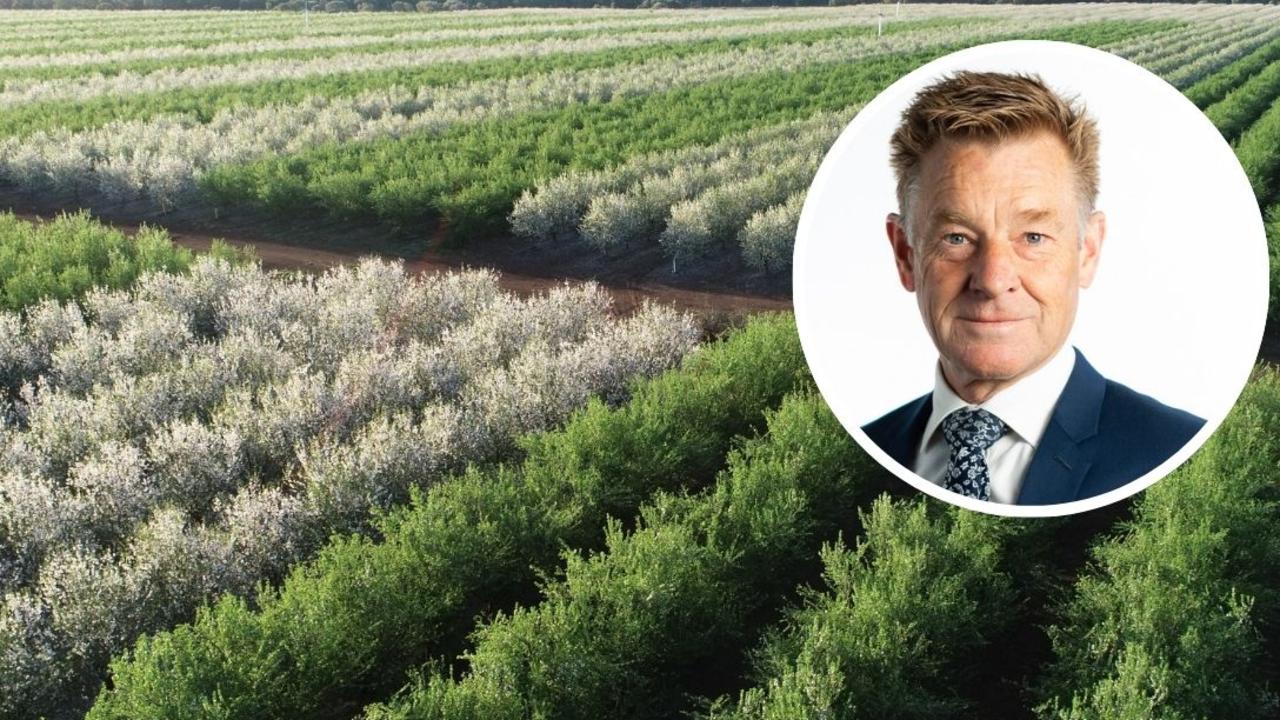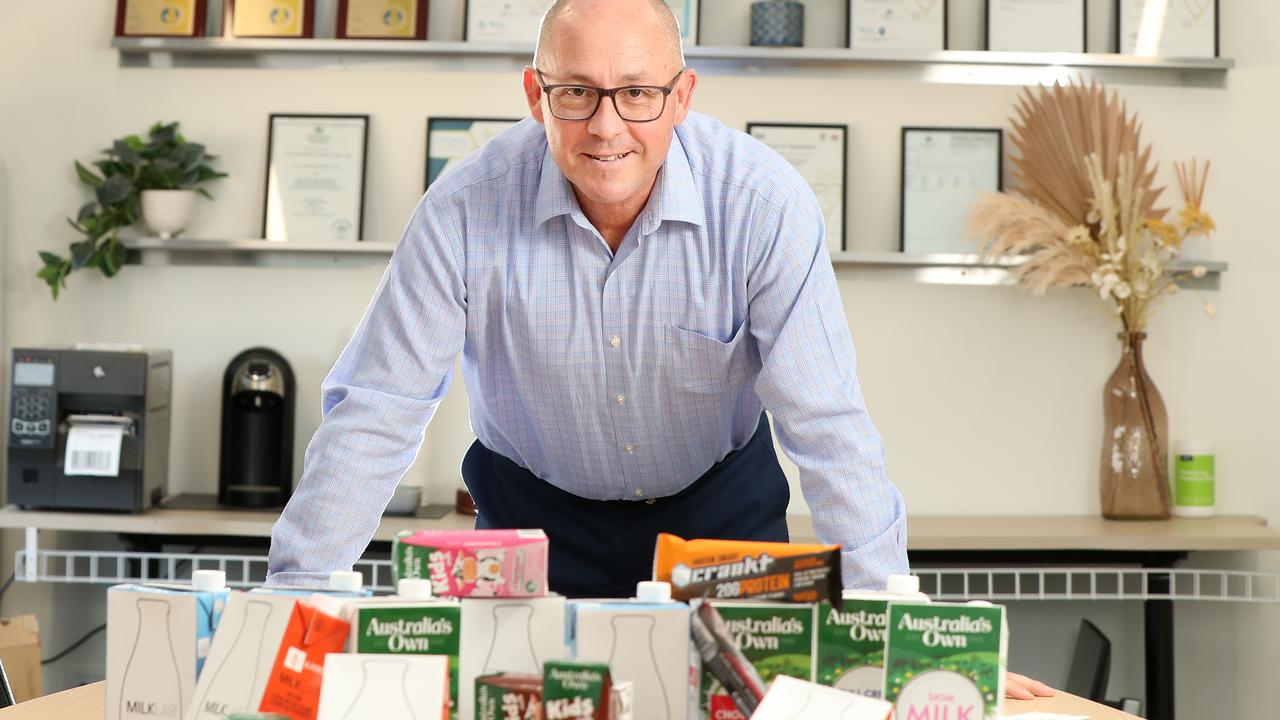Circular Head Farms: Aussie investment fund keeps Tassie dairy land locally owned
Ryan and Brighid Langley weren’t sure there was a future in dairy, until Circular Head Farms gave them a huge opportunity 18 months ago.

All Ryan Langley has ever wanted to do is milk cows.
But until 18 months ago, the 28-year-old Tasmanian dairy farmer was never confident his career choice would set his young family up well for the future, and certainly couldn’t see a viable way to achieve farm ownership himself.
“I was sharefarming for another owner, and I wasn’t too sure, every day going in, if he was going to have a job for me tomorrow,” says the father of two, explaining the owner was planning his endgame, intent on selling the farm.
But things have changed dramatically for Langley, who now sharefarms with his wife, Brighid, and their two daughters, Hannah, 3, and Peyton, 1, on 167 hectares at Redpa in partnership with Circular Head Farms.
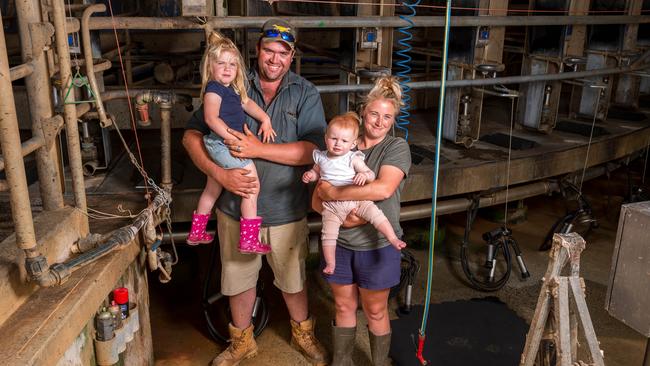
The block on the northwest tip of the island state is one of 11 properties in the region owned by the Australian community-based agricultural investment fund, founded by local farmer Stephen Fisher in 2014.
Designed to support young, keen farmers like the Langleys on their path to land ownership, and retain Tasmanian dairy farmland in Australian hands, the group has expanded its portfolio from six to 11 properties in the past two years.
Its sharefarmers now milk 8500 cows across 3500 hectares of pasture near Smithton, to supply Saputo, budgeting for production of more than 3.5 million kilograms of milk solids this season.
“There has been a momentum build. The past two to three years we have had significant growth,” says Fisher, who started nine years ago with the purchase of a single 500-cow farm in a unit trust.
His first, and perhaps biggest, hurdle to building CHF was convincing locals that his idea for an investment fund was feasible and worthwhile.
He says it took 18 months of talking to people and planning; a brave leap into buying that first farm; and work behind the scenes with lawyers and accountants to set up the right legal framework and business structure.
All his talking in the community paid off at his first investor information night, held in mid-2014.
“I invited the people I had spoken to who had expressed interest (in the idea), and who I thought might have the funds to back it,” he says.
“After that night, we were oversubscribed with money, and I thought perhaps this is going to work.”
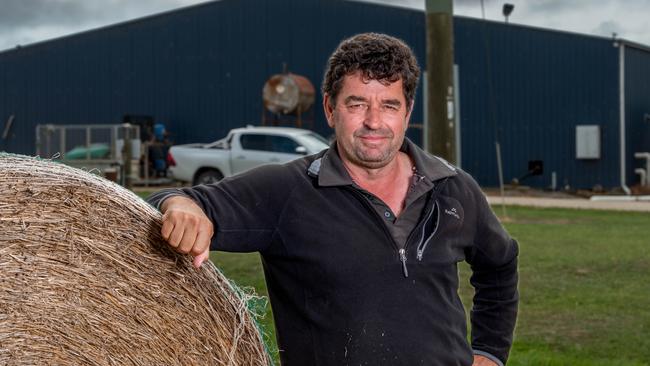
Unit trust investments were capped at $2 million, and he says he was “pleasantly surprised” to hit that target easily.
He assures he has no ambition for Circular Head Farms to be the biggest corporate dairy farmer in Australia, but a major part of its five-year plan is to convert more local dairy-support land into dairy farms.
“Big is not a goal,” he says.
“But, we need a level of scale to be able to do what we do. We want our investors to invest in our values, not necessarily investing for profit. We believe our values will create profit.
“I’ve said right from the start, our core values are retaining local ownership of land and helping people come into the industry, build equity and work through the industry.
“I say to investors, if those are things that are important to you, have a look at it for sure, but we don’t make promises on returns.”
Sharefarmers can invest in the whole fund, or just in the farm that they manage, with a number of CHF properties set up in individual unit trusts.
“I say to sharefarmers, this is not a charity; it wants to offer an opportunity to you,” Fisher says. “Every one of our sharefarmers now has some equity in cattle. That shows that the system is working.” And one of their earliest sharefarmers is on track to this year to step into farm ownership.
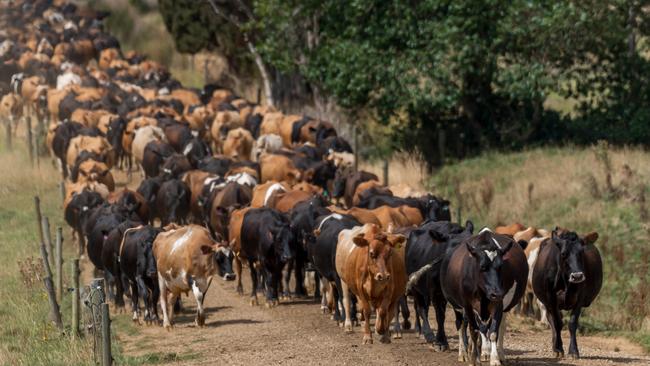
Fisher, 59, grew up on a small family-run property in Tassie. After carving out a 15-year career in agribusiness as a field officer in cropping and export onion industries, he found he was pining for a more direct connection with farming.
“They say you can take the boy out of the farm, but not the farm out of the boy,” says Fisher, explaining his quest to own farmland led to sharefarming in the dairy industry.
“When I got married, I told my wife I’d never be a dairy farmer, but it was there that I saw possibilities.
“Sharefarming seemed to provide a pathway to land ownership for us. No doubt there have been varying forms in cropping and horticulture, but I was exposed to it in dairy and it just turned the lights on.”
Over the course of 18 years, starting from the age of 32, he and wife Karen worked tirelessly in sharefarming roles, and also received huge support from farm-owner partners, who provided equity to help them buy their first run-off block.
“That was our first step into land,” he says. “Over a 10-year period, that consolidated our position to a point where we became farm owners in our own right … as well as built a herd up to 1500 cows.”
Not long after, he realised that the support he and Karen had received was slipping into the realm of history with the rise of foreign-owned corporate farming models.
“The wealth that is created out of farming – you have to own the land to create the wealth,” he says.
“You don’t create wealth by working on the farm; that is the reality of it.”
In 2020, he lamented the fact that at the time more than 40,000 dairy cows in Tasmania were foreign controlled, producing more than 60 per cent of the region’s milk.
He warned in a letter to the Foreign Investment Review Board that with the astronomical rise of land prices, a huge amount of capital appreciation was flowing off shore, and leading to often underwhelming reinvestment back into maintaining the health and productivity of some of Australia’s most precious resources.
Circular Head Farms is his effort to reverse that trend, while replicating the support he and Karen received, on a large scale.
“We had a fantastic opportunity to come in, build wealth, make it possible to buy a farm, and I saw those opportunities were drying up with the corporate model,” Fisher says.
“That is why for me, Circular Head Farms is about how we can help create and retain that wealth in our own community.”
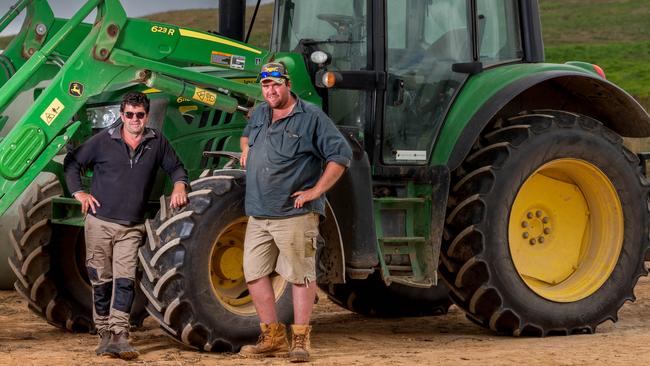
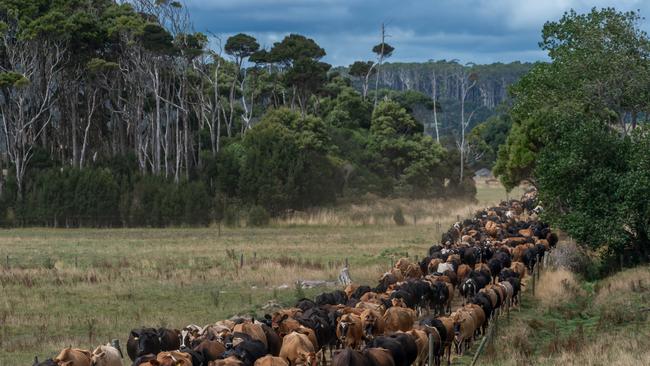
Land ownership is the chalice Ryan and Brighid Langley have been chasing.
“My grandfather openly said the only way you made money out of dairy was when you sold the farm,” says Langley, echoing Fisher’s view.
The couple thought it was out of reach until they heard about Fisher’s vision.
“It was when I was dehorning cows,” Langley says, remembering the moment he was worrying about his future because the property where he had been sharefarming had been sold.
“I just turned to the bloke I was working with and said we need someone who will back us and wants to hand it on.
“He said, ‘well give Steve a ring’.”
CHF didn’t have a sharefarming role available immediately, but several weeks later, a new land acquisition opened an opportunity.
They are the most recent addition to the team, milking 520 cows and working towards a 50:50 split.
While Langley says he still faces plenty of challenges, from a shortage of labour to escalating input costs, the backing of CHF has made a world of difference to his operational productivity and profitability.
“There is a lot of support,” he says, explaining Fisher is just a phone call away, but there is also a strong leadership team with farming expertise, including chairman Paul Lambert, board members Paul Badcock and Josh Taylor, operations manager Rowan Popowski and mentor Wayne Hansen.
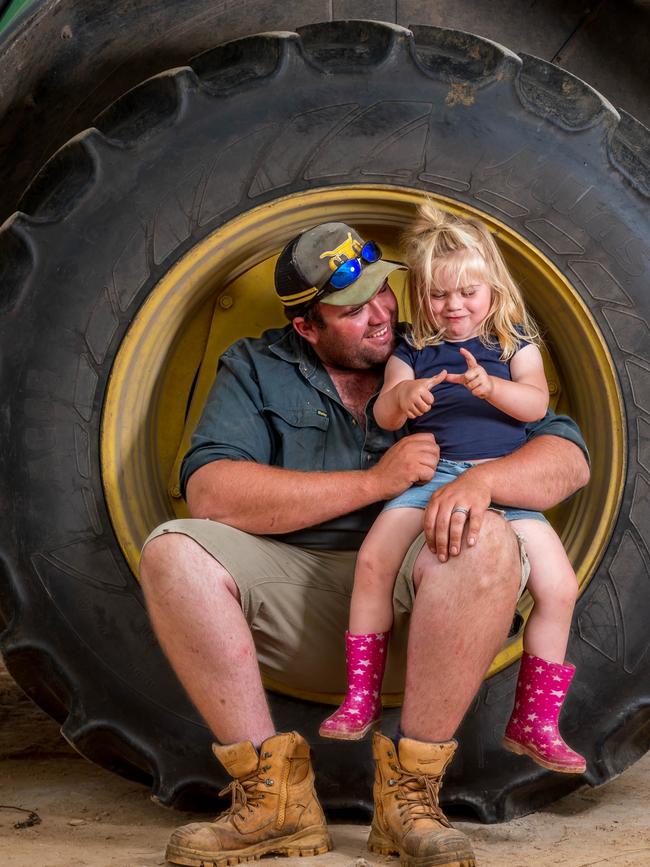
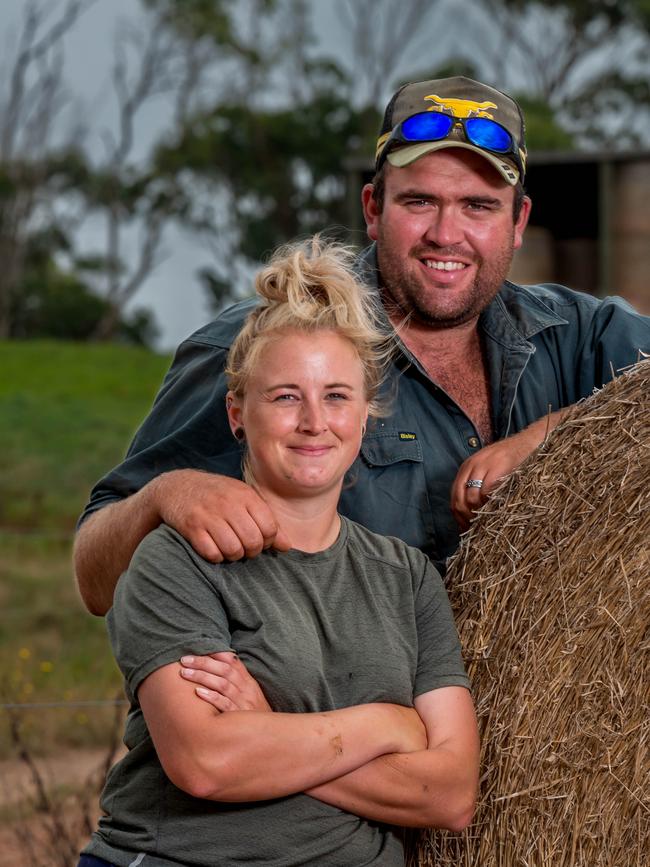
Pasture management is Langley’s profit driver.
“I’m trying to grow as much good grass as possible so that turns into as much milk as possible,” he says.
“I suppose as a sharefarmer it is the thing we have full control over.”
With support from CHF, the Langleys are working on improving pasture fertility and species, and upgrading drainage on the property.
“Circular Head Farms came in and we’re just fixing all those issues as the years go on,” Langley says.
Fisher says responsible land stewardship, and resulting increased property values, is another bonus of keeping ownership local.
“What I say to our sharefarmers is we want farms that our community can drive past and be proud of,” he says.
“That adds a lot of accountability to what we do.
“We do spend a fair bit of money on capital development, upgrading effluent systems and drainage.
“We want farms that are enjoyable places for our sharefarmers and profitable places for them to operate.
“The engagement we have had from unit holders, sharefarmers and the buy-in from people has been satisfying; to see the concept mature, and come to a point where it is working for everyone.”
Circular Head Farms sharefarmers Joann and Craig Morgan-French were dairy category finalists in The Weekly Times Coles 2022 Farmer of the Year Awards.



